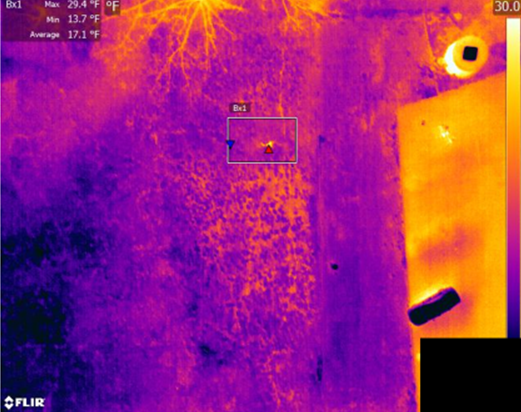Walden is working to assist MS4 communities to improve storm water quality by using thermal imaging from drones to efficiently identify sources of potential pollution. Efficiently identifying heat differentials in the soil using aerial thermal imaging technology can pinpoint illicit discharges, failing onsite wastewater treatment systems and other pollution sources, which can then be inspected and abated by local municipalities. Walden generated reports on detected discharges and other relevant environmental conditions determined by the field work, analysis and field follow-up. Walden and Harkin Aerial completed several MS4 studies to find illicit discharges using drones.
Walden was pleased to partner with Harkin Aerial in completing recent R&D projects funded by the Nassau County Soil and Water Conservation District to improve the waterways of Nassau County through their 2020 grant and assistance programs.
Walden joined partners including Harkin Aerial, the Cornell Cooperative Extension of Suffolk County (CCE), and Town and Village Officials in the Lauren Hollow watershed area to present findings and results. Walden was pleased to work with Harkin Aerial, Oyster Bay/Cold Spring Harbor Protection Committee (OBCSHPC), Friends of the Bay (FOB) and CCE on this research and development to improve public health, environmental stewardship and water quality.
This innovative project used Unmanned Aerial Vehicles (also known as drones) and aerial thermography in the following areas to find sources of water pollution: Cold Spring Harbor Watershed; Mill Neck Creek and Oyster Bay Harbor to efficiently identify potential illicit discharges and assess existing hydrologic and water quality data collected in the Laurel Hollow sub watershed.
Advanced technology was used to produce over 13,000 images, to investigate surface water quality by using thermal measures to detect relative differences in water temperatures. The use of drones provided the advantage for recognizing Points of Interest (POI) throughout the area of the watersheds. The Project was an opportunity to investigate the vulnerable coastal and inland areas for illicit discharges. There were POIs that were identified in the images, giving the communities the locations to follow-up on potential pathways of discharge. Scott Harrigan, Founder of Harkin Aerial stated, “This information collected can provide good education events for homeowners and municipalities in the community to manage public health and water quality”.
Partners agreed that they were able to collect information that built a baseline to develop management efforts to identify and reduce potential pollutants in the communities. The goal of these assessments was to guide future management efforts by coordinating research and results of the drone technology data collected to detect illicit discharges and potential areas of pollution in the area.
“The Nassau County Soil and Water Conservation District is pleased to have supported this innovative research” said David Ganim, District Manager for the Nassau County SWCD. “The District’s purpose is to protect, preserve, restore, and enhance our natural resources, and these efforts to develop and enhancing the tools we have to assess and then improve water quality helps to accomplish this. We are delighted to have funded this research and look forward to seeing its lasting and positive impact for our community.”
Through use of advanced technology, Walden and Harkin have demonstrated that it is possible to identify these potential illicit discharges in hopes to sufficiently accomplish water quality and stormwater management for the Long Island Watersheds. Walden and Harkin have partnered together in the past with innovative strategies to implement better stormwater management and water quality for communities.
Please review our Guide to Drones in Environmental Engineering: How Drones Are Mapping Sites, Improving Water Quality and Managing Infrastructure. Visit our blog Industrial Stormwater Pollution in MS4 Areas to learn more. For more information on opportunities and projects such as these, please contact Walden today!
Walden can help your organization improve its stormwater management with respect to MS4, SWPPP, SPDES and more. Walden is also active in many areas of innovation, research and development of water quality and environmental stewardship efforts to improve the communities of our region.

